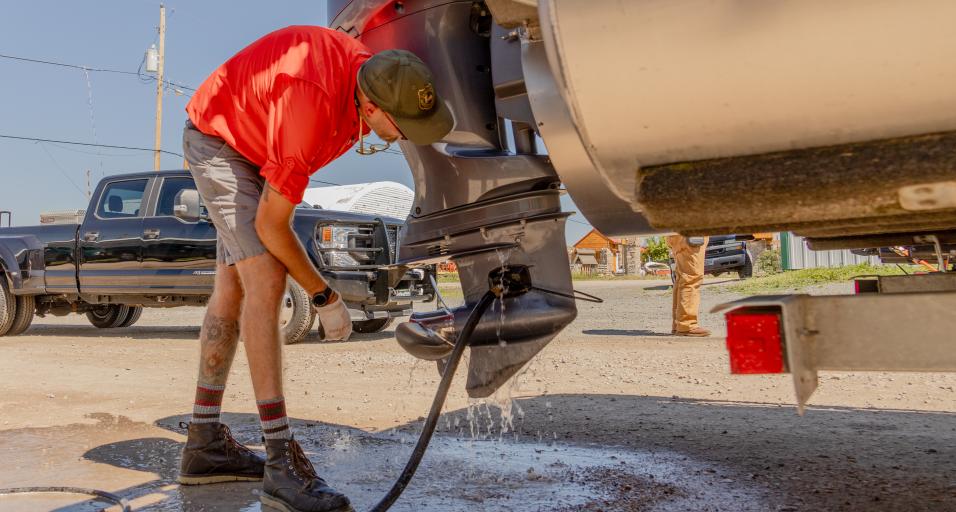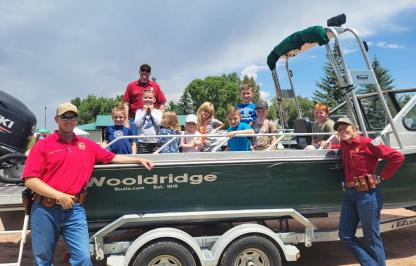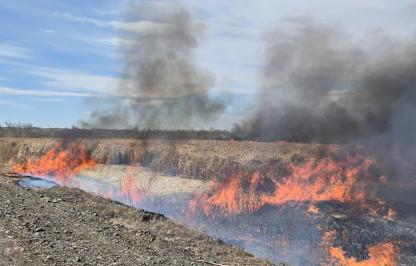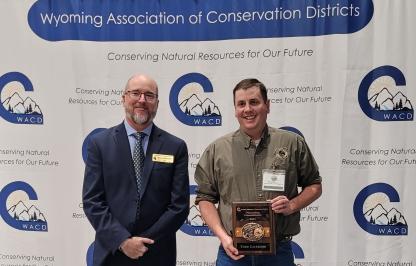Wyoming Game and Fish Department personnel had another busy year keeping aquatic invasive species out of the state.
In 2024, Game and Fish inspected 78,157 watercraft, the most since the AIS program started in 2010. That total was up by more than 8,000 inspections from 2023. There were 1,282 boat decontaminations last year, an increase from 1,112 the previous year.
AIS inspectors look for many kinds of AIS during watercraft inspections, but the primary ones are zebra and quagga mussels. Wyoming is one of five states in the country not to have quagga and zebra mussels. However, every state bordering Wyoming — except Montana — has at least one waterbody that contains mussels.
Forty-seven watercraft were found to have mussels at check stations last year, which was down from 62 in 2023. Thirty-five of those boats were inspected at the Interstate 80 Port of Entry check station outside of Evanston near the Utah border. That location continues to be the busiest of the state’s check stations with 18,685 inspections in 2024. The second-most was at Glendo Reservoir with 9,330. The check station near Evanston also had the most high-risk inspections (2,433) and decontaminations (416) than any other check station in the state last year.
A watercraft harboring live zebra mussels was intercepted on Sept. 22 at the Beulah check station in northeast Wyoming. That was the only watercraft with verified live mussels discovered at a Wyoming check station in 2024. The watercraft had been moored for several months in South Dakota’s Pactola Reservoir where a population of mussels was discovered in 2022.
“When the AIS program launched in 2010, our stations were only open for the main boating season,” said Josh Leonard, Game and Fish AIS coordinator. “In the last few years, given the increased threat of AIS, we recognize the need to stay open even when the bulk of boaters are off the water. Situations like this demonstrate the threat is at our borders and knocking on Wyoming’s door. Everyone in Wyoming or coming to Wyoming should be concerned and get involved.”
Reed Moore, Game and Fish AIS specialist in the Sheridan Region said since the discovery of zebra mussels in Pactola Reservoir, more than 50 percent of watercraft inspections at the Beulah check station were considered high-risk for transporting AIS.
Zebra and quagga mussels can wreak havoc in freshwater ecosystems, cause damage to watercraft and cause a decline in tourism. They also can clog dam systems, municipal water pipes, irrigation systems and treatment facilities. An infestation in one of Wyoming’s water treatment facilities could cost hundreds of thousands of dollars annually to remove the mussels, keep water flowing and mitigate damage.
Live, adult mussels can reproduce the moment they hit the water under the right conditions. Watercraft with these mussels could easily start a new population. Inspections are the first line of defense for many watercraft.
Any watercraft transported into Wyoming from March 1-Nov. 30 must undergo a mandatory inspection by an authorized inspector prior to launching on any Wyoming waterway. It’s state law that anyone with a watercraft must stop when coming upon an open AIS inspection station, even if they stopped at one prior or do not intend to launch in Wyoming. This applies to all motorized watercraft, as well as nonmotorized watercraft such as kayaks, canoes, rafts and paddleboards.
-WGFD-




